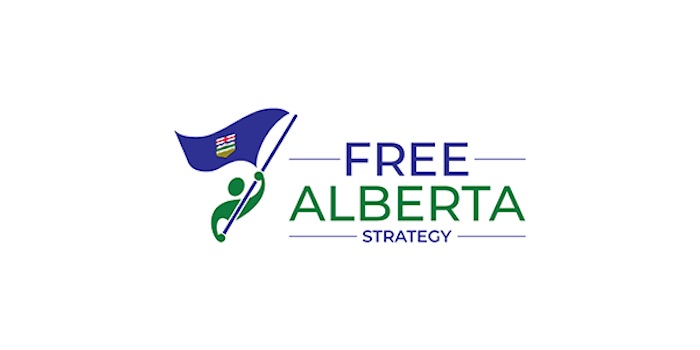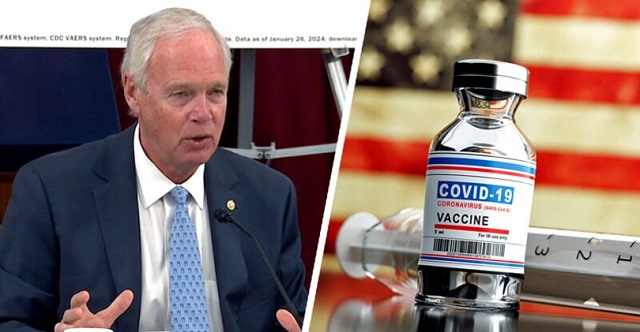Alberta
Defending Provincial Priorities

News release from Free Alberta Strategy
The recent debate around zoning across the province is a prime example of federal encroachment.
The federal government offered money to cities to help with housing affordability challenges, but only made the money available if cities promised to change zoning policies.
As you are aware, The Free Alberta Strategy was built on the concept that the federal government needs to keep out of provincial jurisdiction.
For years, Ottawa has been watering down the constitutional delineation of duties between the federal government and the provincial government.
Bill 18 – the Provincial Priorities Act – is anticipated to pass in the Alberta Legislature this week, and represents a huge step in the direction of greater provincial jurisdictional autonomy.
The Provincial Priorities Act has been dubbed the “Keep Out of Our Backyard” law by Alberta Premier Danielle Smith.
Under the Provincial Priorities Act, any agreements between the federal government and any provincial entities – including municipalities – must receive provincial approval to be considered valid.
Agreements between the federal government and provincial entities lacking Alberta’s endorsement will be deemed illegal under this legislation.
When the legislation was announced, Smith was not mincing words:
“It is not unreasonable for Alberta to demand fairness from Ottawa. They have shown time and again that they will put ideology before practicality, which hurts Alberta families and our economy. We are not going to apologize for continuing to stand up for Albertans so we get the best deal possible.
“Since Ottawa refuses to acknowledge the negative impacts of its overreach, even after losing battles at the Federal and Supreme Courts, we are putting in additional measures to protect our provincial jurisdiction to ensure our province receives our fair share of federal tax dollars and that those dollars are spent on the priorities of Albertans.”
Although the federal government has limited direct authority in provincial jurisdiction, it can leverage its substantial financial resources to prompt or pressure provincial governments into specific actions.
The recent debate around zoning across the province is a prime example of federal encroachment.
The federal government offered money to cities to help with housing affordability challenges, but only made the money available if cities promised to change zoning policies.
Calgary Mayor Jyoti Gondek tried to claim that the federal housing funds were not contingent on the city’s rezoning efforts, but federal Housing Minister Sean Fraser posted a pretty strong response on social media platform X (formerly Twitter):
“If Calgary, or any other city, does not meet the conditions they have agreed to, we will withhold funding under the agreement.”
The federal government played the same trick in many other provinces, too.
But, notably, in Quebec, the federal government just gave the Quebec government the cash and let them distribute it to their municipalities without conditions.
It’s tempting to think this is just more federal bias towards Quebec.
But, actually, this is a great example of how pushing back can have results.
You see, the Provincial Priorities Act in Alberta is modeled after existing legislation in Quebec, known as “An Act Respecting the Ministère du Conseil exécutif,” which prohibits any municipal body from negotiating or entering into agreements with the federal government or its agencies without explicit authorization from the Quebec government.
If Ottawa wants to meddle in Quebec’s jurisdiction, it must first seek Quebec’s approval.
And it works – the federal government got back in line.
Now, with the Provincial Priorities Act, if Ottawa wants to meddle in Alberta’s jurisdiction, it must first seek Alberta’s approval.
It’s time for Ottawa to recognize Alberta’s autonomy and respect our right to determine our own future.
At the Free Alberta Strategy, we understand that constant vigilance is necessary – every time we establish a boundary, the federal government tries to circumvent it.
We will continue to inform you about what’s happening in Alberta and fight to keep Ottawa out.
But we need your support.
With your help, we can continue our work to defend Alberta’s sovereignty and serve the best interests of all Albertans.
Enough is enough – we will not stand by while our interests are disregarded.
If you are in a financial position to contribute to our work, please donate!
Alberta
Housing in Calgary and Edmonton remains expensive but more affordable than other cities

From the Fraser Institute
By Tegan Hill and Austin Thompson
In cities across the country, modest homes have become unaffordable for typical families. Calgary and Edmonton have not been immune to this trend, but they’ve weathered it better than most—largely by making it easier to build homes.
Specifically, faster permit approvals, lower municipal fees and fewer restrictions on homebuilders have helped both cities maintain an affordability edge in an era of runaway prices. To preserve that edge, they must stick with—and strengthen—their pro-growth approach.
First, the bad news. Buying a home remains a formidable challenge for many families in Calgary and Edmonton.
For example, in 2023 (the latest year of available data), a typical family earning the local median after-tax income—$73,420 in Calgary and $70,650 in Edmonton—had to save the equivalent of 17.5 months of income in Calgary ($107,300) or 12.5 months in Edmonton ($73,820) for a 20 per cent down payment on a typical home (single-detached house, semi-detached unit or condominium).
Even after managing such a substantial down payment, the financial strain would continue. Mortgage payments on the remaining 80 per cent of the home’s price would have required a large—and financially risky—share of the family’s after-tax income: 45.1 per cent in Calgary (about $2,757 per month) and 32.2 per cent in Edmonton (about $1,897 per month).
Clearly, unless the typical family already owns property or receives help from family, buying a typical home is extremely challenging. And yet, housing in Calgary and Edmonton remains far more affordable than in most other Canadian cities.
In 2023, out of 36 major Canadian cities, Edmonton and Calgary ranked 8th and 14th, respectively, for housing affordability (relative to the median after-tax family income). That’s a marked improvement from a decade earlier in 2014 when Edmonton ranked 20th and Calgary ranked 30th. And from 2014 to 2023, Edmonton was one of only four Canadian cities where median after-tax family income grew faster than the price of a typical home (in Calgary, home prices rose faster than incomes but by much less than in most Canadian cities). As a result, in 2023 typical homes in Edmonton cost about half as much (again, relative to the local median after-tax family income) as in mid-sized cities such as Windsor and Kelowna—and roughly one-third as much as in Toronto and Vancouver.
To be clear, much of Calgary and Edmonton’s improved rank in affordability is due to other cities becoming less and less affordable. Indeed, mortgage payments (as a share of local after-tax median income) also increased since 2014 in both Calgary and Edmonton.
But the relative success of Alberta’s two largest cities shows what’s possible when you prioritize homebuilding. Their approach—lower municipal fees, faster permit approvals and fewer building restrictions—has made it easier to build homes and helped contain costs for homebuyers. In fact, homebuilding has been accelerating in Calgary and Edmonton, in contrast to a sharp contraction in Vancouver and Toronto. That’s a boon to Albertans who’ve been spared the worst excesses of the national housing crisis. It’s also a demographic and economic boost for the province as residents from across Canada move to Alberta to take advantage of the housing market—in stark contrast to the experience of British Columbia and Ontario, which are hemorrhaging residents.
Alberta’s big cities have shown that when governments let homebuilders build, families benefit. To keep that advantage, policymakers in Calgary and Edmonton must stay the course.
Alberta
Danielle Smith slams Skate Canada for stopping events in Alberta over ban on men in women’s sports

From LifeSiteNews
The Alberta premier has denounced Skate Canada as ‘disgraceful’ for refusing to host events in the province because of a ban on ‘transgender’ men in women’s sports.
Alberta Premier Danielle Smith has demanded an apology after Skate Canada refused to continue holding events in Alberta.
In a December 16 post on X, Smith denounced Skate Canada’s recent decision to stop holding competitions in Alberta due to a provincial law keeping gender-confused men from competing in women’s sports.
“Women and girls have the right to play competitive sports in a safe and fair environment against other biological females,” Smith declared. “This view is held by a vast majority of Albertans and Canadians. It is also common sense and common decency.”
Women and girls have the right to play competitive sports in a safe and fair environment against other biological females.
This view is held by a vast majority of Albertans and Canadians. It is also common sense and common decency.
Skate Canada‘s refusal to hold events in… pic.twitter.com/n4vbkTx6B0
— Danielle Smith (@ABDanielleSmith) December 16, 2025
“Skate Canada‘s refusal to hold events in Alberta because we choose to protect women and girls in sport is disgraceful,” she declared.
“We expect they will apologize and adjust their policies once they realize they are not only compromising the fairness and safety of their athletes, but are also offside with the international community, including the International Olympic Committee, which is moving in the same direction as Alberta,” Smith continued.
Earlier this week, Skate Canada announced their decision in a statement to CBC News, saying, “Following a careful assessment of Alberta’s Fairness and Safety in Sport Act, Skate Canada has determined that we are unable to host events in the province while maintaining our national standards for safe and inclusive sport.”
Under Alberta’s Fairness and Safety in Sport Act, passed last December, biological men who claim to be women are prevented from competing in women’s sports.
Notably, Skate Canada’s statement failed to address safety and fairness concerns for women who are forced to compete against stronger, and sometimes violent, male competitors who claim to be women.
Under their 2023 policy, Skate Canada states “skaters in domestic events sanctioned by Skate Canada who identify as trans are able to participate in the gender category in which they identify.”
While Skate Canada maintains that gender-confused men should compete against women, the International Olympic Committee is reportedly moving to ban gender-confused men from women’s Olympic sports.
The move comes after studies have repeatedly revealed what almost everyone already knew was true, namely that males have a considerable innate advantage over women in athletics.
Indeed, a recent study published in Sports Medicine found that a year of “transgender” hormone drugs results in “very modest changes” in the inherent strength advantages of men.
Additionally, male athletes competing in women’s sports are known to be violent, especially toward female athletes who oppose their dominance in women’s sports.
Last August, Albertan male powerlifter “Anne” Andres was suspended for six months after a slew of death threats and harassments against his female competitors.
In February, Andres ranted about why men should be able to compete in women’s competitions, calling for “the Ontario lifter” who opposes this, apparently referring to powerlifter April Hutchinson, to “die painfully.”
Interestingly, while Andres was suspended for six months for issuing death threats, Hutchinson was suspended for two years after publicly condemning him for stealing victories from women and then mocking his female competitors on social media. Her suspension was later reduced to a year.
-

 Alberta2 days ago
Alberta2 days agoDanielle Smith slams Skate Canada for stopping events in Alberta over ban on men in women’s sports
-

 International1 day ago
International1 day agoTOTAL AND COMPLETE BLOCKADE: Trump cuts off Venezuela’s oil lifeline
-

 Crime2 days ago
Crime2 days agoThe Uncomfortable Demographics of Islamist Bloodshed—and Why “Islamophobia” Deflection Increases the Threat
-

 COVID-191 day ago
COVID-191 day agoSenator Demands Docs After ‘Blockbuster’ FDA Memo Links Child Deaths To COVID Vaccine
-

 Daily Caller10 hours ago
Daily Caller10 hours ago‘Almost Sounds Made Up’: Jeffrey Epstein Was Bill Clinton Plus-One At Moroccan King’s Wedding, Per Report
-

 Business21 hours ago
Business21 hours agoCanada Hits the Brakes on Population
-

 COVID-191 day ago
COVID-191 day agoChina Retaliates Against Missouri With $50 Billion Lawsuit In Escalating Covid Battle
-

 Energy2 days ago
Energy2 days agoLiberals Twisted Themselves Into Pretzels Over Their Own Pipeline MOU





